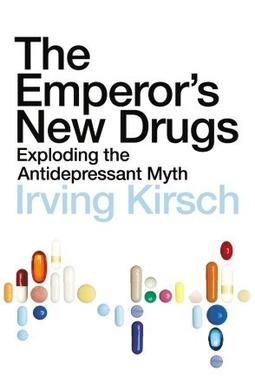
A placebo can be roughly defined as a sham medical treatment. Common placebos include inert tablets, inert injections, sham surgery, and other procedures.
Suggestibility is the quality of being inclined to accept and act on the suggestions of others. One may fill in gaps in certain memories with false information given by another when recalling a scenario or moment. Suggestibility uses cues to distort recollection: when the subject has been persistently told something about a past event, his or her memory of the event conforms to the repeated message.
A self-fulfilling prophecy is a prediction that comes true at least in part as a result of a person's belief or expectation that said prediction would come true. Self-fulfilling prophecies are an example of the more general phenomenon of positive feedback loops. A self-fulfilling prophecy can have either negative or positive outcomes. Merely applying a label to someone or something can affect the perception of the person/thing and create a self-fulfilling prophecy. Interpersonal communication plays a significant role in establishing these phenomena as well as impacting the labeling process.

An attitude "is a summary evaluation of an object of thought. An attitude object can be anything a person discriminates or holds in mind." Attitudes include beliefs (cognition), emotional responses (affect) and behavioral tendencies. In the classical definition an attitude is persistent, while in more contemporary conceptualizations, attitudes may vary depending upon situations, context, or moods.
The Pygmalion effect is a psychological phenomenon in which high expectations lead to improved performance in a given area and low expectations lead to worse. It is named after the Greek myth of Pygmalion, the sculptor who fell so much in love with the perfectly beautiful statue he created that the statue came to life. The psychologists Robert Rosenthal and Lenore Jacobson present a view, that has been called into question as a result of later research findings, in their book Pygmalion in the Classroom; borrowing something of the myth by advancing the idea that teachers' expectations of their students affect the students' performance. Rosenthal and Jacobson held that high expectations lead to better performance and low expectations lead to worse, both effects leading to self-fulfilling prophecy.
Expectancy theory proposes that an individual will behave or act in a certain way because they are motivated to select a specific behavior over others due to what they expect the result of that selected behavior will be. In essence, the motivation of the behavior selection is determined by the desirability of the outcome. However, at the core of the theory is the cognitive process of how an individual processes the different motivational elements. This is done before making the ultimate choice. The outcome is not the sole determining factor in making the decision of how to behave.
The observer-expectancy effect is a form of reactivity in which a researcher's cognitive bias causes them to subconsciously influence the participants of an experiment. Confirmation bias can lead to the experimenter interpreting results incorrectly because of the tendency to look for information that conforms to their hypothesis, and overlook information that argues against it. It is a significant threat to a study's internal validity, and is therefore typically controlled using a double-blind experimental design.
A nocebo effect is said to occur when negative expectations of the patient regarding a treatment cause the treatment to have a more negative effect than it otherwise would have. For example, when a patient anticipates a side effect of a medication, they can experience that effect even if the "medication" is actually an inert substance. The complementary concept, the placebo effect, is said to occur when positive expectations improve an outcome. The nocebo effect is also said to occur in someone who falls ill owing to the erroneous belief that they were exposed to a toxin, e.g. a physical phenomenon they believe is harmful, such as EM radiation.

The theory of planned behavior (TPB) is a psychological theory that links beliefs to behavior. The theory maintains that three core components, namely, attitude, subjective norms, and perceived behavioral control, together shape an individual's behavioral intentions. In turn, a tenet of TPB is that behavioral intention is the most proximal determinant of human social behavior.
Surprise is a brief mental and physiological state, a startle response experienced by animals and humans as the result of an unexpected event. Surprise can have any valence; that is, it can be neutral/moderate, pleasant, unpleasant, positive, or negative. Surprise can occur in varying levels of intensity ranging from very-surprised, which may induce the fight-or-flight response, or little-surprise that elicits a less intense response to the stimuli.
Behavioural change theories are attempts to explain why human behaviours change. These theories cite environmental, personal, and behavioural characteristics as the major factors in behavioural determination. In recent years, there has been increased interest in the application of these theories in the areas of health, education, criminology, energy and international development with the hope that understanding behavioural change will improve the services offered in these areas. Some scholars have recently introduced a distinction between models of behavior and theories of change. Whereas models of behavior are more diagnostic and geared towards understanding the psychological factors that explain or predict a specific behavior, theories of change are more process-oriented and generally aimed at changing a given behavior. Thus, from this perspective, understanding and changing behavior are two separate but complementary lines of scientific investigation.
Appraisal theory is the theory in psychology that emotions are extracted from our evaluations of events that cause specific reactions in different people. Essentially, our appraisal of a situation causes an emotional, or affective, response that is going to be based on that appraisal. An example of this is going on a first date. If the date is perceived as positive, one might feel happiness, joy, giddiness, excitement, and/or anticipation, because they have appraised this event as one that could have positive long-term effects, i.e. starting a new relationship, engagement, or even marriage. On the other hand, if the date is perceived negatively, then our emotions, as a result, might include dejection, sadness, emptiness, or fear. Reasoning and understanding of one's emotional reaction becomes important for future appraisals as well. The important aspect of the appraisal theory is that it accounts for individual variability in emotional reactions to the same event.
Disconfirmed expectancy is a psychological term for what is commonly known as a failed prophecy. According to the American social psychologist Leon Festinger's theory of cognitive dissonance, disconfirmed expectancies create a state of psychological discomfort because the outcome contradicts expectancy. Upon recognizing the falsification of an expected event an individual will experience the competing cognitions, "I believe [X]," and, "I observed [Y]." The individual must either discard the now disconfirmed belief or justify why it has not actually been disconfirmed. As such, disconfirmed expectancy and the factors surrounding the individual's consequent actions have been studied in various settings.
Fear appeal is a term used in psychology, sociology and marketing. It generally describes a strategy for motivating people to take a particular action, endorse a particular policy, or buy a particular product, by arousing fear. A well-known example in television advertising was a commercial employing the musical jingle: "Never pick up a stranger, pick up Prestone anti-freeze." This was accompanied by images of shadowy strangers (hitchhikers) who would presumably do one harm if picked up. The commercial's main appeal was not to the positive features of Prestone anti-freeze, but to the fear of what a "strange" brand might do.

Determination is a positive emotional feeling that promotes persevering towards a difficult goal in spite of obstacles. Determination occurs prior to goal attainment and serves to motivate behavior that will help achieve one's goal.

Irving Kirsch is an American psychologist and academic. He is the Associate Director of the Program in Placebo Studies and a lecturer in medicine at the Harvard Medical School and Beth Israel Deaconess Medical Center. He is also professor emeritus of psychology at the Universities of Hull and Plymouth in the United Kingdom, and the University of Connecticut in the United States. Kirsch is a leading researcher within the field of placebo studies who is noted for his work on placebo effects, antidepressants, expectancy, and hypnosis. He is the originator of response expectancy theory, and his analyses of clinical trials of antidepressants have influenced official treatment guidelines in the United Kingdom. He is the author of the 2009 book The Emperor's New Drugs, which argued most antidepressant medication is effective primarily due to placebo effects.

Steven L. Neuberg is an American experimental social psychologist whose research has contributed to topics pertaining to person perception, impression formation, stereotyping, prejudice, self-fulfilling prophecies, stereotype threat, and prosocial behavior. His research can be broadly characterized as exploring the ways motives and goals shape social thought processes; extending this approach, his later work employs the adaptationist logic of evolutionary psychology to inform the study of social cognition and social behavior. Neuberg has published over sixty scholarly articles and chapters, and has co-authored a multi-edition social psychology textbook with his colleagues Douglas Kenrick and Robert Cialdini.

Jefferson Morris Fish is a professor emeritus of psychology at St. John's University in New York City, where he previously served as Chair of the Department of Psychology and as Director of the PhD Program in Clinical Psychology.
In social psychology, the boomerang effect, also known as "reactance", refers to the unintended consequences of an attempt to persuade resulting in the adoption of an opposing position instead. It is sometimes also referred to as "the theory of psychological reactance", stating that attempts to restrict a person's freedom often produce an "anticonformity boomerang effect". In other words, the boomerang effect is a situation where people tend to pick the opposite of what something or someone is saying or doing because of how it is presented to them. Typically, the more aggressive something is presented, people would more than likely want to do the opposite. For example, if someone were to walk up to a yard with a sign saying "KEEP OFF LAWN" the person would be more likely to want to walk on the lawn because of the way they read the sign. If the sign read "please stay off my grass" people would be more likely to follow the directions.

The Emperor's New Drugs – Exploding the Antidepressant Myth is a 2009 book by Irving Kirsch, arguing that the chemical imbalance theory of depression is wrong and that antidepressants have little or no direct effect on depression but, because of their common or serious side-effects, they are powerful active placebos.








